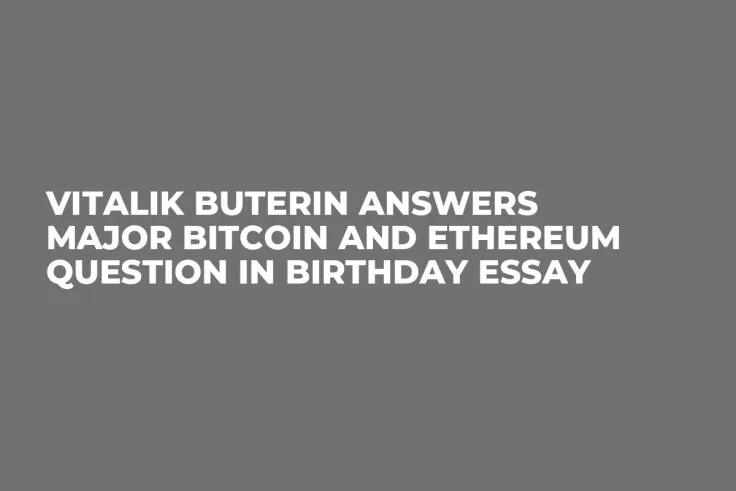
Renowned Ethereum cofounder Vitalik Buterin celebrated his 30 birthday today by releasing a thoughtful essay titled "The End of My Childhood." The essay delves into the genesis of cryptocurrencies, and Bitcoin in particular, underscoring its initial purpose as a response to the vulnerabilities of traditional banking systems.
In his reflective piece, Buterin questions the evolution of public discourse within the crypto space over the past 15 years, pondering whether the original narrative emphasizing financial disruption has waned. To address this, he proposes two pragmatic approaches for the crypto ecosystem.
First, Buterin advocates for a renewed emphasis on the significance of money and finance, urging the crypto space to actively contribute to serving underserved populations and fostering financial inclusion. Second, he envisions a broader role for crypto that extends beyond finance.
Highlighting the unique decentralized nature of the crypto industry, Buterin notes that developers are dispersed globally, and many major crypto projects are not bound by geographical constraints. He emphasizes the potential of non-Western developers to understand and address the concrete needs of users in low-income countries.
Ideal reality by Vitalik Buterin
Buterin's vision for Ethereum goes beyond financial applications. He envisions ETH as the foundation for a decentralized tech stack, emphasizing trustworthiness, democracy and privacy. Zero-knowledge proofs are identified as a key innovation in achieving these goals, offering a nuanced approach to issues of authenticity, manipulation and privacy.

In addition to Ethereum's role as a financial platform, Buterin encourages the community to broaden its focus, positioning his brainchild as a competitive force against centralized tech companies.
The essay articulates a nuanced perspective on the roles of token holders, intellectuals, builders and pragmatic users within the crypto ecosystem, highlighting the need for collaboration and understanding between these groups.


 Vladislav Sopov
Vladislav Sopov Dan Burgin
Dan Burgin